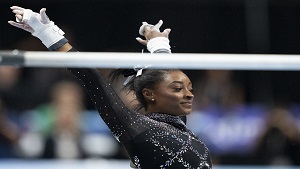After winning back-to-back UEFA EURO crowns and the nation’s first FIFA World Cup title in between, Spain came up short at their next three major tournaments.
It was a potentially explosive situation, one that required great care and lots of nous. The 51-year-old coach has nevertheless exceeded all expectations in his 18 months in the post, returning Spain to the global elite and positioning them as one of the favourites for Russia 2018.
Asked by FIFA.com to explain the secrets to his success, Lopetegui identified four key factors.
Keep looking forward
“Spain have won a lot recently. It’s great to look back on that golden era and give thanks to the greatest generation Spanish football has ever produced and one of the greatest of all time. But it’s over now.
“We’ve got some of those players left and a group of youngsters, and what we’re trying to do is mix the two generations together, but without comparing them. We’ve got faith in the players coming through, in their ability, in their quality and ambition. And we need to leave them to find their way.”
Communication, communication, communication
“Obviously, changes are not easy to make and they’re not black and white. What we try to do first and foremost is speak very clearly with the players, tell them the kind of football we want and to get the feeling back. We had to make some necessary changes to make the team stronger again.
“We’re also very aware of the fact that what we did in the qualifying competition isn’t going to guarantee us anything, just as it didn’t in the past. We won big titles, but it didn’t mean we were going to win more. The only guarantees you can get come with the football you play at tournaments, and we need to be prepared for that.”
Adapting tactics to the players
“This Spain team can’t play in the same way as in the past, simply because no two sides are exactly the same. They’re different teams with very different types of players. That’s why we’ve tried to develop the attributes our players have and adapt through our way of understanding the game, by trying to be competitive, organised, aggressive and ambitious.
“A great team has to be able to react to different situations and know that it’s only in developing their strengths that they can find the best response. That’s what we’ve tried to do: play the football we know and then be able to adapt to every situation without losing the essence of what makes us strong.”
A new generation with a winning mentality
“Several of the players in this new generation were with me in the youth teams and they’ve come up through the ranks. Some of them have followed a natural course of development in joining us on this adventure. Isco, for example, has become an important player at Real Madrid, which is not easy. He’s 24, he has a lot of quality and he can become even better yet.
“He and others in the team have had the experience of winning titles since they were young and they’ve nurtured that ambition. The players who’ve won things at youth level have something extra inside them. It’s not an essential requirement – not at all – but it is a good thing for them, because they can draw on that experience when things get tough. And we hope to make the most of it.”
--fifa--













